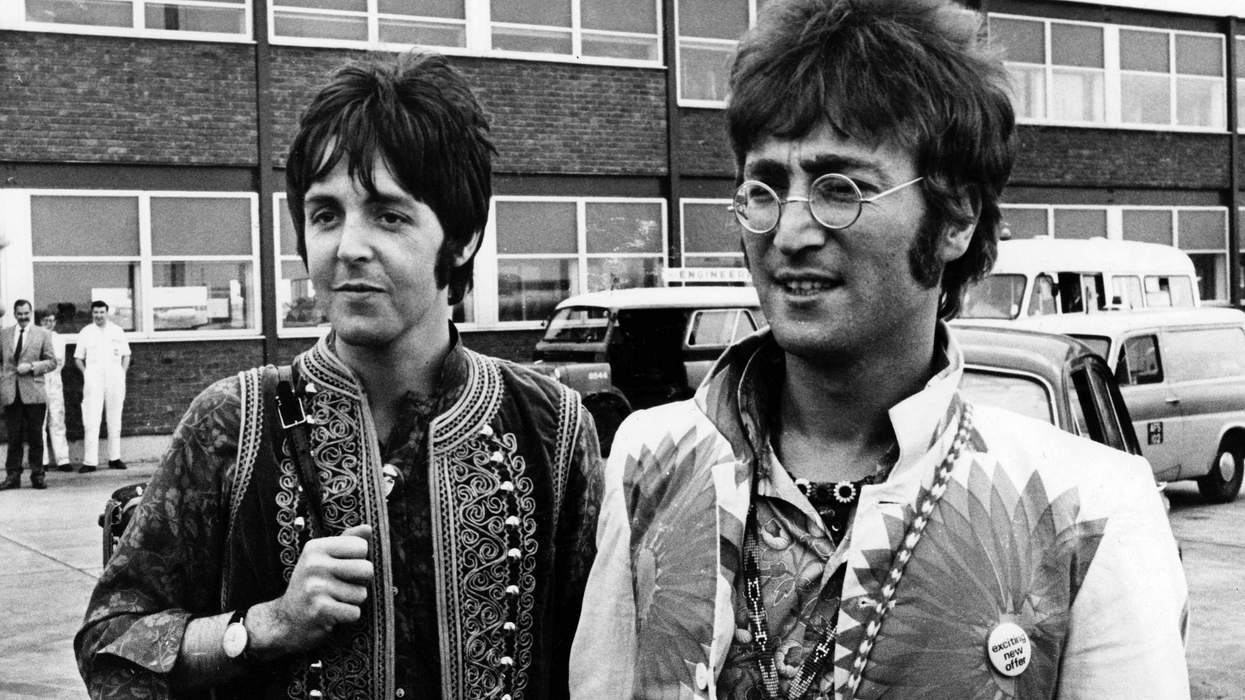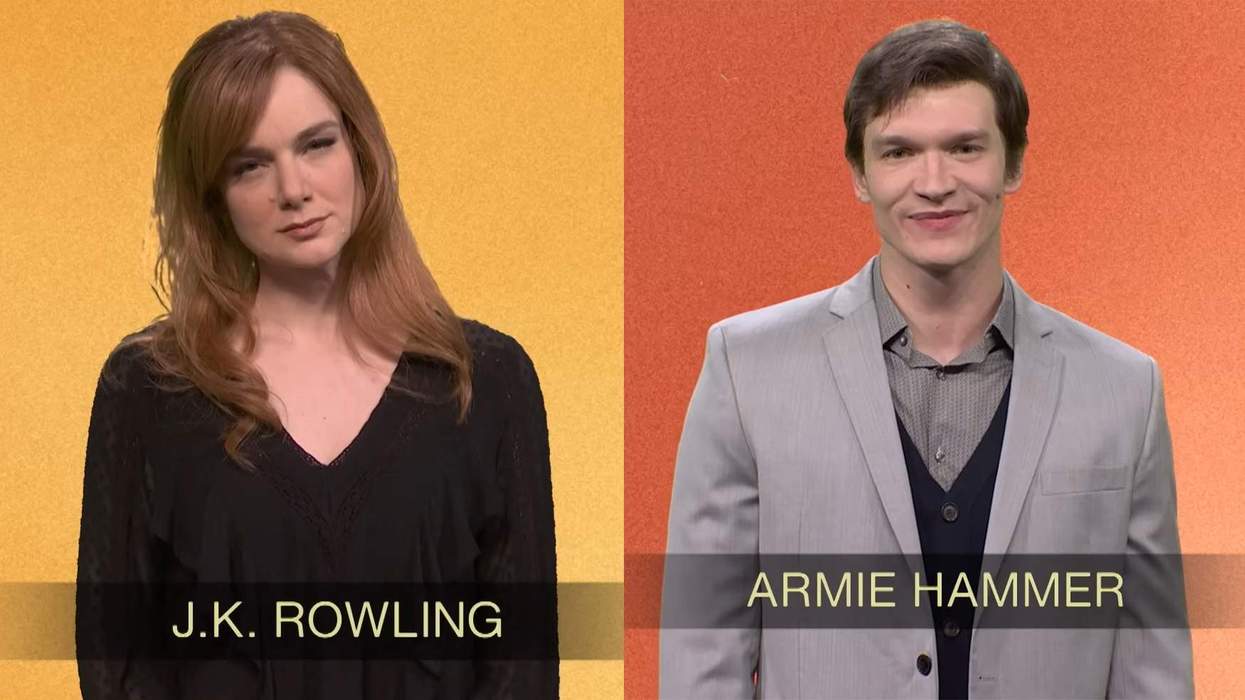Saturday Night Live has taken on discriminatory casting. But rather than criticizing Hollywood, the show took aim at those protesting these practices.
On Saturday, the NBC comedy sketch series aired a faux game show called "Can I Play That?" in which contestants Idris Elba, Cecily Strong, and Beck Bennett were tasked with determining the social acceptance of different casting choices.
Faux host Kenan Thompson described the show as "actors' least favorite game."
When asked if Elba could portray a blind character, the actor said yes. He was told he gave an incorrect answer. "God took their sight, now you want to take their jobs," Thompson said with mock outrage.
"Isn't that what acting is about? Becoming someone you're not?" Elba asked.
"Not anymore, no," Thompson responded. "Now it's about becoming yourself but with a different haircut."
"This game is produced by Twitter," explained Thompson, who offered a fake slogan for the social media platform: "Twitter, one mistake, and we'll kill you."
"Can I Play That?" also reviewed the acceptability of being cast as "a half-Asian character," an astronaut, and Caitlyn Jenner. When asked who could portray the transgender celebrity, whose conservative politics have made her a divisive figure in the LGBTQ community, Strong said "no one."
"That's right. It is an impossible movie to make. I dare someone to try," Thompson said.
Additionally, Thompson declared "only one person can play the ghost of Michael Jackson": Rami Malek. "Somehow, Rami Malek can play anybody," he said. The Egyptian-American actor won the Oscar for Best Actor in February for his portrayal of Freddie Mercury, the late bisexual front man of Queen, in Bohemian Rhapsody.
Overall, the skit makes fun of the outrage expressed on social media after Hollywood casts a person whose race, ethnicity, gender identity, or sexual orientation does not match the character he or she portrays. In recent years, Emma Stone and Scarlett Johannson have been slammed for portraying characters of Asian descent; the latter also backed down from a transgender role after an intense backlash on Twitter.
However, the point of view of the skit skews from a place of privilege. For most actors from historically marginalized communities, the question is not "Can I Play That?" but rather "Would Hollywood ever cast me in that?"
Studio movies that do not center on white, straight, cisgender men are still few and far between. For example, it took over 10 years for Marvel Studios to release a female-led superhero film, Captain Marvel, which premiered just last weekend.
Even films that do center on marginalized people still whitewash or straightwash the lead characters in order to cast movie stars. Notably, this year's Best Picture at the Oscars, Green Book, privileged the white perspective in a minority person's story. Moreover, three of the four acting awards went to straight actors for portraying LGBTQ characters.
However, the SNL skit fed into the false narrative that it is white men who have lesser opportunities in a media landscape that is still struggling to catch up with diverse representation. When asked what roles he could play, Bennett, who is white, said, "A white guy. A white guy who gains 50 pounds. Slaveowner. That's it." In reality, white men have the largest variety of roles available to them.
Watch the skit below.















Charlie Kirk DID say stoning gay people was the 'perfect law' — and these other heinous quotes
These are some of his worst comments about LGBTQ+ people made by Charlie Kirk.